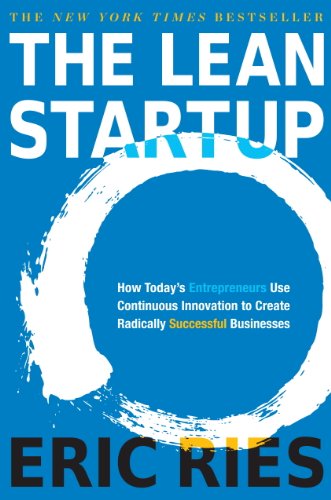

This article is an excerpt from the Shortform summary of "The Lean Startup" by Eric Ries. Shortform has the world's best summaries of books you should be reading.
Like this article? Sign up for a free trial here .
Votizen was a civil participation startup based around politics. It’s a key example in Lean Startup. But what happened to Votizen the company? Learn more about the lessons learned from Votizen’s near-failure and how it improved its way to success.
Pivoting in a Startup
One of the hardest challenges you’ll face is deciding whether to continue in your current direction (persevere) or to change your fundamental hypothesis about your business (pivot).
The answer is often unclear because you will seldom encounter complete, abject failure. The more insidious state is when you’re barely limping along, not plummeting to the earth but also feeling like you’re not really making progress.
There are two signs of the need to pivot:
- Your metrics are not good enough to meet your goals for your startup.
- Your experiments are leading to less and less progress (which is a sign that you’re out of good ideas)
Pivoting at Votizen
Lean Startup gives the example of Votizen, a company founded to boost participation in politics. Their first product was a social network where voters could unite around causes and mobilize action. They formed hypotheses around 4 metrics: signing up (registration), verifying voters (activation), sticking around and using Votizen (retention), and recruiting friends to join (referral).
Votizen built a MVP in 3 months and got their baseline metrics. Then they spent 2 more months and $5,000 to get a second set of metrics. Then they spent another 8 months and $20,000 to get a third set of metrics. Let’s take a look:
| MVP(3 months, $1,200) | Optimization 1(2 months, $5,000) | Optimization 2(8 months, $20,000) | |
| Registration | 5% | 17% | 17% |
| Activation | 17% | 90% | 90% |
| Retention | Too low to measure | 5% | 8% |
| Referral | Too low to measure | 4% | 6% |
Starting with just the MVP, Votizen was at a good starting point, and without a chance to improve the metrics, it was too early to pivot. The first round of optimization led to major improvements in every single metric. But the second period of optimization, costing much more time and money, led to barely a bump in metrics.
This is a sign to pivot – they had taken the current idea as far as they could go.
From user interviews, Votizen got another idea – pivot to a way to let voters contact their elected representatives easily. Users could write an email or tweet, and Votizen would print a paper letter and send it to their Congressional representative or Senator. Even better, they could charge for this service and start funding the company through revenue.
They called this @2gov, and spent another 4 months and $30,000 to build the prototype. Here were the metrics:
| MVP(3 months, $1,200) | Optimization 1(2 months, $5,000) | Optimization 2(8 months, $20,000) | @2Gov Pivot MVP(4 months, $30,000) | |
| Registration | 5% | 17% | 17% | 42% |
| Activation | 17% | 90% | 90% | 83% |
| Retention | Too low to measure | 5% | 8% | 21% |
| Referral | Too low to measure | 4% | 6% | 54% |
| Payment | N/A | N/A | N/A | 1% |
Fantastic! Even though their new product was just an MVP, they still showed huge improvements over the most optimized version of their last product. They still had a lot of room to go to become a sustainable business, but they knew they were now on a better track.
———End of Preview———

Like what you just read? Read the rest of the world's best summary of "The Lean Startup" at Shortform . Learn the book's critical concepts in 20 minutes or less .
Here's what you'll find in our full The Lean Startup summary :
- How to create a winning Minimum Viable Product
- How to understand how your startup will grow
- The critical metrics you need to track to make sure your startup is thriving






